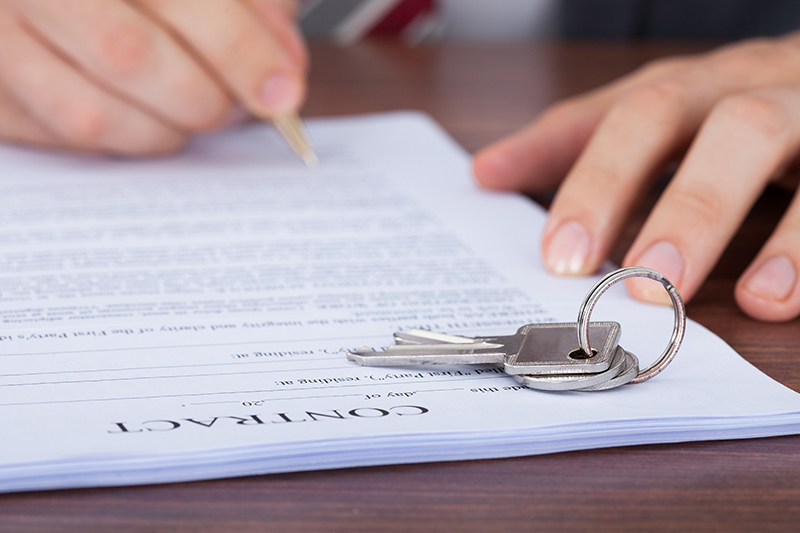Seller Purchase Agreements and Contracts
That stack of paperwork may look intimidating, but it's full of valuable information about your home sale.

Depending on where you live, the paperwork for negotiating an offer and sales contract is either a one-step or a two-step process. In either case, this is the very most important and legally binding part of your residential real estate transaction.
The multi-page document you and the buyer need to negotiate is called a 'purchase and sale agreement,' an 'earnest money agreement,' or a 'contract to sell' depending on where you live. State and local laws mean the content may vary a bit, too.
Take seller disclosure forms, for example. A termite inspection is not required in areas without termites. Radon is not present all across the country, but lead paint could be found in all buildings constructed prior to 1978 and, under federal law, sellers must disclose any known lead paint in the house. In some communities, sellers must disclose the presence of an underground fuel oil storage tank — a potential environmental hazard.
This contract is legally binding no matter where you live. Read it. And don't skimp on the fine print. If you don't understand something, ask an expert before you start negotiating with your buyer.
This contract spells out everything about the sale from the legal description of your property to the moment the new owner can take possession of the home.
Both seller and buyer can make changes to the contract language but both parties have to agree to, and initial, every change.
Among the subjects covered in purchase and sale agreements are the descriptions of the property, financial arrangements, inspections and disclosures, and settlement details. The actual forms contain many more subjects and much more detail. But here are some examples of the type of information included.
Property descriptions
- The address of the property along with its legal description, perhaps the tax parcel number, and approximate square footage.
- Itemized property to be sold, including any personal possessions the seller is letting the buyer keep. Fireplace inserts, window screens, built-in appliances, and bookshelves typically all stay unless another agreement is reached.
- Quality of title instructions. The seller must prove she really owns the property. The buyer wants a clean or clear title, not one encumbered by tax liens and claims of ownership by a long-lost relative or an ex-spouse.
Financial arrangements
- The sales price the buyer will pay plus the details of the financing, along with the time frame within which the buyer will apply for and receive a loan. There is probably a contingency stating that the deal is off and the buyer gets the deposit back if she can't put together the financing.
- Earnest money deposit. The amount is listed as well as the third party who will keep the deposit and in what type of account.
Inspections and disclosures
- A list of inspections and who will pay for them. Also whether the buyer can cancel the contract or whether the seller is obligated to make repairs if something needs attention.
- The seller's disclosure report, a list of questions about specific items plus space to write anything else that could be detrimental to the buyer. For example: Has the property ever been a crack house? Is there asbestos in the duct work? Has the basement ever leaked? In California, sellers must disclose whether the home is in a flood, fire, or earthquake zone.
Settlement details
- Who handles closing. In some parts of the country an escrow agreement is part of the sales contract. It directs an escrow agent to handle settlement, and gives the seller, buyer, and lender instructions and deadlines for submitting various documents. Lenders, title insurance companies, real estate brokers, and either the buyer's or seller's attorney also might handle closing.
- A preferred closing date, and date the new owner can expect to take possession.
- The seller's obligation to maintain the property and remove trash and personal possessions, including the condition the home must be in when the new owner receives the keys.
- The closing costs, and who will pay each line item. These are significant costs, so both parties should be aware of them. Local custom is helpful, but everything is negotiable.
- The amount of the agents' commissions, if either party is using an agent. Does the seller usually pay the commissions in your area? Will the buyer pick up any of the commission tab?
- How pro-rated utility bills and taxes will be handled at closing.
Note: When the contract is signed by both parties, it will spell out all terms and conditions of the home sale.

Written by
Zillow
02.02.2018
Ready for a new address?
Get an instant cash offer or list with a local partner agent.
Explore selling options


